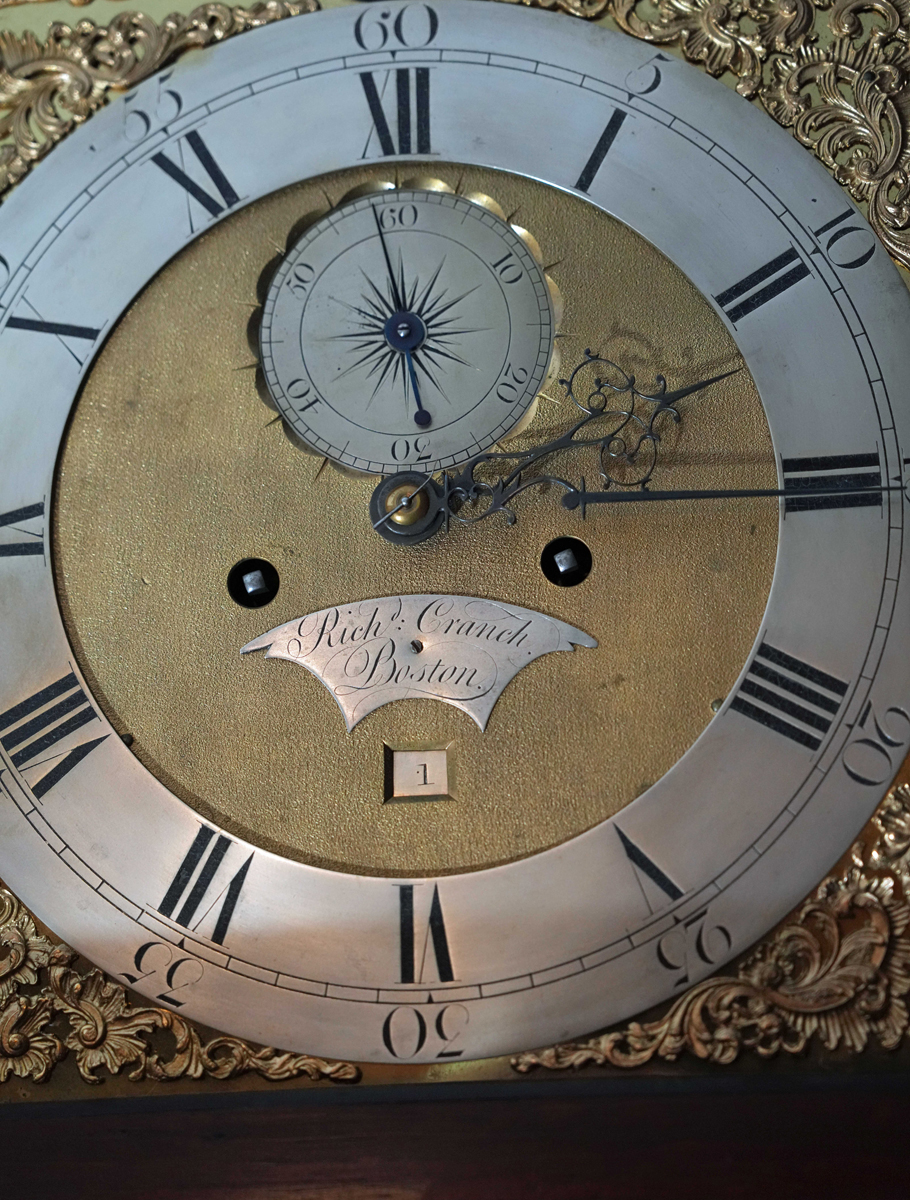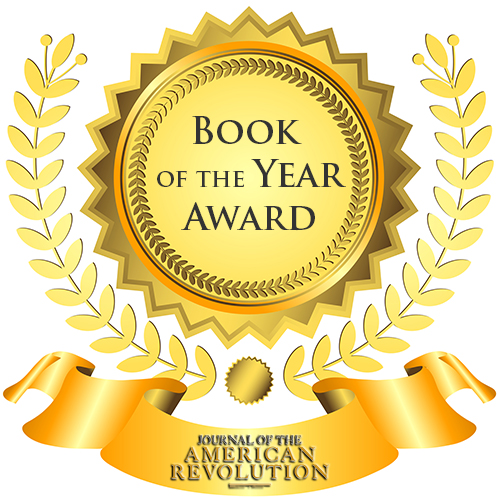Book review: Scars of Independence: America’s Violent Birth by Holger Hoock (Crown, 2017)
Wars take an awful human toll, no matter how just the cause. Regardless of the ideological, economic or other reasons that a war is fought, and regardless of how much humanity as a whole might benefit from the outcome, the day-to-day mechanics of warfare results in widespread suffering of all sorts. While soldiers often volunteer their participation, there are invariably people are in the way of military activity who suffer physical or economic harm. In addition, wars tend to polarize societies, resulting in the devastation and displacement of individuals and families who either are sympathetic towards one side, or who refuse to support either side. It is a part of every war, and the American Revolution was no different.
Holger Hoock explores the dark aspects of the American Revolution in his new book Scars of Independence. It is a significant study for the obvious reason that it dares to look beyond the principles and perceptions of righteousness that pervade much of the popular literature on the subject, illustrating that the operational aspects of the war were fraught with atrocities and injustices at all levels that were committed by all sides. The additional significance is in examining these aspects of the war as a topic unto itself, rather than simply as sidelights to the study of some other facet of the conflict. This book puts the ugliness of the war at the forefront.
For those who are well-read on the American Revolution, there is surprisingly little here that is wholly new. Persecution of those with different views, coercion of neutrals to take sides, barbaric treatment of prisoners of war, the suffering of civilians at the hands plundering soldiers of all nations, the unnecessary slaughter of soldiers and civilians. All of these topics are to some extent familiar, but usually receive limited or isolated treatment; we read about single incidents without learning about widespread practices. Scars of Independence examines these and other aspects of wartime violence in great depth, making extensive use of primary sources to do so, showing that wanton violence and abuse was pervasive during the American Revolution. Such a broad study will probably be new to even the experienced student of the war.
What is lacking in many parts of the discussion is comparison to the general conditions of life during the era. We learn, for example, that American and British soldiers might be lashed as punishment for crimes, and of the awful nature of lashing. No mention, however, is made of servants, slaves and laborers who might also get beaten by their masters, or that soldiers at least had the benefit of a trial before being subjected to such punishments. We read horrific details about military prisons, but nothing about civilian prisons to give a basis for comparison. The war was brutal, to be sure, but how much worse was it than peacetime life?
In some cases the injustices are put in a rational light, showing the difficult choices that leaders had to make when the only options would lead to some sort of suffering. Should the army risk starvation or desertion of its soldiers, or forcibly seize crops and subject the local population to deprivation and disenfranchisement – which choice better served the army’s long-term goals? Many of the wartime abuses are shown to be the natural result of conflict, or the result of choice between two evils.
The book is extensively annotated, revealing the wealth of primary sources consulted by the author. The presentation of the end notes, however, is challenging; note numbers appear only at the end of each paragraph, making it difficult to determine which elements of the paragraph correlate to which sources. This convention is not unusual, and is effective for writers who tend to draw material for each paragraph from a single source, but for a work of this sort where the author has done a masterful job of compiling and integrating material, aggregating the sources for each paragraph only makes it difficult for those who wish to pursue a source to identify it with certainty.
Scars of Independence is not an easy read, partly because of the depth of analysis and partly because of the truly horrible things that it relates. As an examination of the war’s violence, it emphasizes only the darkest aspects of the conflict. This is intentional, but it comes at the expense of seeing any other facet of the war. The book is an outstanding counterpoint to the many works that ignore the grim realities of warfare, but it is important for the reader to keep in mind that it is not intended to be a complete picture. It should not stand alone as the only perspective. It is, however, an outstanding and long-overdue balance for other types of American Revolution history, and as such is highly recommended.









7 Comments
Don, in working on the “Heavenly Harvest” piece I read his grim 2015 article on rape by the British (Journal of Military Ethics). But then, Nathanael Greene is grim in describing the same horrors. I just ordered the book. The surprise is how cheap the hardback is on Amazon Prime–$15.59. I wonder if that is temporary. Thanks for reviewing this book.
Thanks for this review of Hoock’s book, I’m putting it on my TO READ list. I’m currently reading Alan Taylor’s take on the American Revolution: American Colonies and American Revolutions. Good solid stuff. I’m an amateur historian, much to learn, and this website is a great teacher.
Thank you for your thoughtful review of the book and subject matter. Count me as one who agrees it is important to understand all the varied facets, good and evil of war but certainly with regard to a war as monumental as the AR it is imperative.
That said, how does one transport one’s self back to the 18th Century in order to be pragmatic concerning such things? How do I suspend my 21st Century sensibilities? I try but find it is impossible and am then left in an uncomfortable quandary. Do I not know good and evil exist side by side at all times? Yes, of course I do. Human history is littered with the wreckage of it. And that is not to say I do not believe the book and its content is not historically and culturally significant. Suffice to say I abhor crimes on humanity regardless of the times in which they occur. But I believe there is an inherent injustice when modern authors write of past atrocities.
The book sounds well written, researched and presented, however, I’m not sure it is one I care to add to my burgeoning AR reading list. I prefer reading of such content within the framework of the war in which they occurred and your review has me doubting such from this book. Thank you again.
Here’s my review, for what it’s worth:
I didn’t think I would like this book at first. I was afraid it would be somewhat anti-American as it implied that much of the horror of the American Revolution has been whitewashed, with the traditional focus being more on the political struggles than the evils of war. I was also not particularly looking forward to graphic descriptions of torture, rape, destruction, etc. I was wrong on my assumptions…
I found “Scars of Independence” to be very interesting mostly because it doesn’t cover the same ground as most books on this time period. Sure, luminaries like Washington, Jefferson, Adams, and Franklin are referenced, but the bulk of the book covers the less well-known instances of animosity between Patriots and Loyalists, the wanton destruction of property (in some cases, by the Patriots who then accused the British of the destruction for propaganda purposes), etc.
My only real complaint may not ultimately be valid: I received an advance reader’s edition via Library Thing’s Early Reviewer program and I found the images in the book to be too small to really enjoy. This may be taken care of in the “real” edition. But I would like to have been able to read some of the broadsides and cartoons.
If you’re a fan of this time period, I feel strongly that much of this book will be new to you.
A VERY ‘DIFFERENT’ — SLICE OF LIFE CIRCA 1776…
WELL WORTH THE TIME IT TAKES TO READ – VERY
INTERESTING MATERIAL.
H.T.PAISTE,III
SEVC- SPRING CITY, PA 19475
I finally got free of Melville and am working on what was wrong with hanging Tories in North Carolina. This morning I wanted to check something not in Holger Hoock’s index so I went to Amazon’s LOOK INSIDE feature. While I was there I saw “Parker” as the author of a review of SCARS OF INDEPENDENCE which I did not write and when I clicked on “Parker” I was told that the review had been “publicly posted by Hershel Parker.” Then I saw that dozens of reviews under “Parker” were also “publicly posted by Hershel Parker.” I called Amazon about the Identity Theft and got someone who promised to pass on my complaint to those who could help. This is more than a little upsetting, for I value my “brand,” and these pieces to not greatly exalt my reputation as a reviewer. Has anyone else experienced this sort of identity theft and, if so, what were you able to do about it?
Don, please make it “do not greatly exalt” instead of “to not greatly exalt”–& thanks.